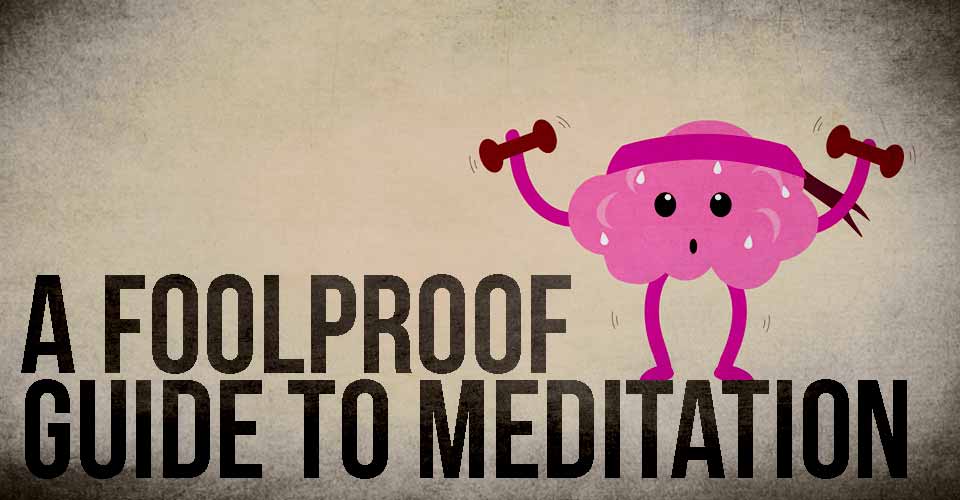What if I were to tell you that you can increase your happiness, lower your stress levels, boost your creativity and productivity, strengthen your relationships with friends and family, and meet any set of circumstances with calm and relaxation, simply by sitting still in a chair for twenty minutes every day, for the rest of your life? Would you do it?
Meditation has received a lot of excellent press over the past few decades, and rightly so.
It’s an ages-old remedy for nearly every ailment, but has been especially helpful in addressing modern society’s ills. Meditation also, due to its provenance, has a lot of myths and stereotypes attached to it. So here’s the quick-and-dirty, 100% foolproof guide to meditation that works for literally everyone.
One of the biggest problems with meditation is the notion that you have to be practicing a certain religion, or have a certain cushion, or be in a particular frame of mind in order to practice it perfectly. The awesome truth about meditation is that simply by doing it, you are practicing it perfectly. A teacher of mine is fond of saying, “If you sit and think for twenty minutes, then you have done a perfect meditation.” You don’t need to have anything, subscribe to any belief system, or be in any particular frame of mind to meditate. The beauty of it is that in doing the practice, you attain the benefits…but only by doing the practice.
Lest this sound like some kind of funky weird New Agey kind of recommendation: literally hundreds of studies have been conducted on meditation and all of them have concluded that it offers substantial health benefits. Neuroscientists have shown that meditation increases the brain’s gyrification, or the “folds” in the cerebral cortex which demonstrate growth. This research was conducted by use of MRI technology. Furthermore, MRIs of people who meditated showed an increase in grey matter in the brain stem versus those who did not meditate. The neurological benefits have clear evidence in their favor: meditation actually strengthens your brain.
Beyond the brain, substantial studies have proven the power of meditation.
Regular meditation helps boost your social life and your personal happiness. It helps to decrease depression, anxiety and stress. Meditation’s benefits, in fact, are so widely-reaching that it’s difficult to find something that doesn’t benefit from a regular meditation practice.
So how do you start your practice? In four easy steps:
1. Set a timer for 20 minutes
2. Get yourself into a comfortable, relaxed, but alert, seated position. Sit with your back as straight as possible
3. Close your eyes and breathe naturally
4. When thoughts come into your mind, try to detach from them instead of getting involved with thinking about them. Let them go and focus on your breath instead.
And that’s it. Really. When the timer goes off, get up and go about your life.
Oh, wait, there is one more step:
5. Do this every day for the rest of your life.
I know that seems like a big commitment, but it’s less time than it takes to watch a sitcom or make dinner or filter your Netflix queue down to what you want to watch for the night, so why not give it a shot? The benefits of meditation take time. It requires practice. But you will receive them. All of them. No matter what. So really, what have you got to lose?
For a little more in-depth coverage of this topic, check out this video by Leo of Actualized.org.



